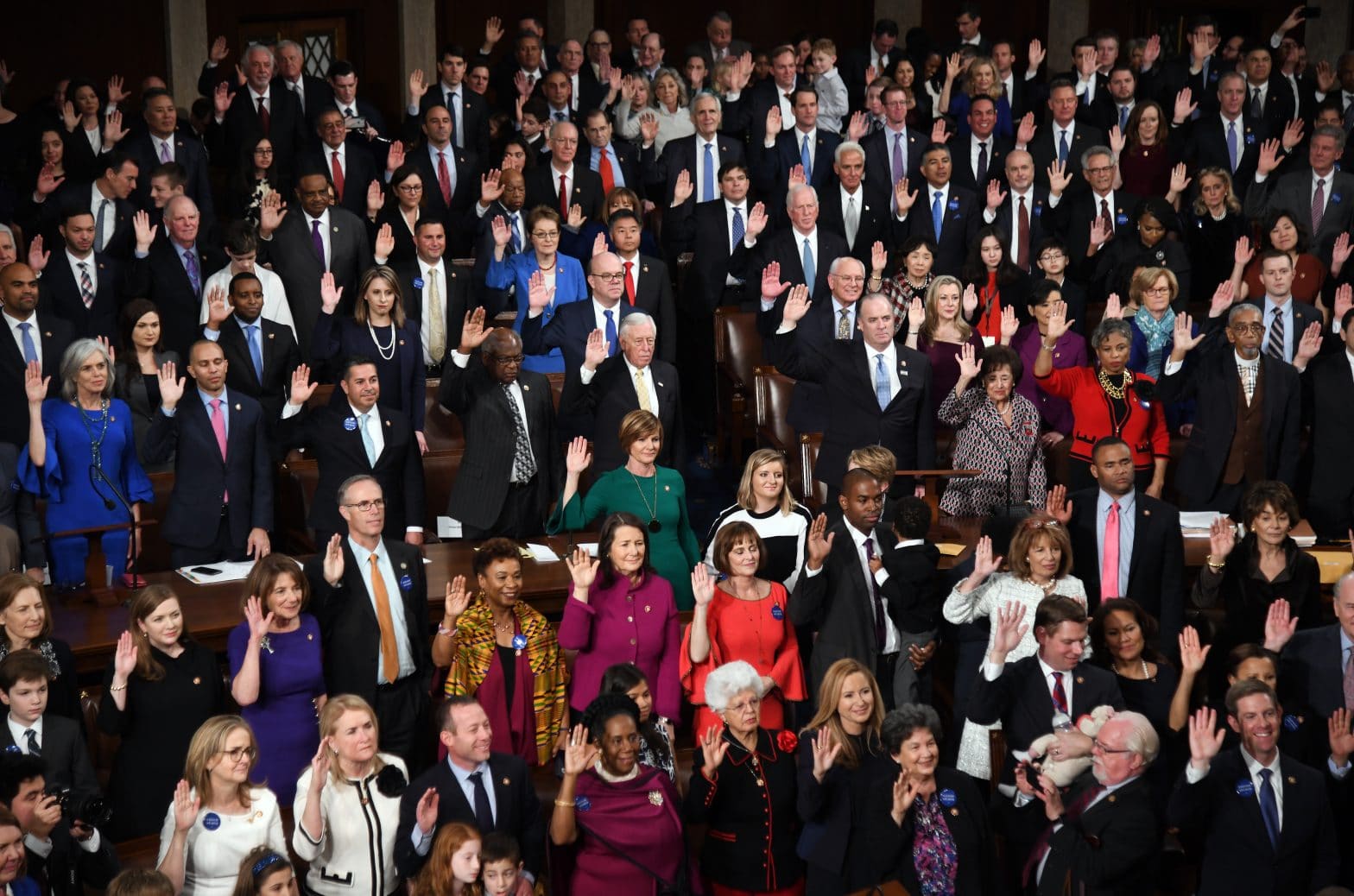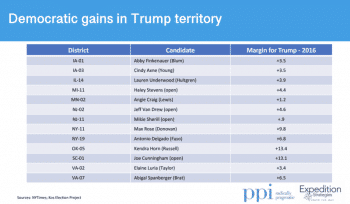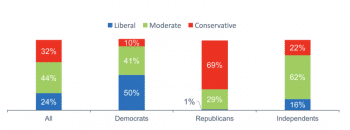The Dangers of Big Ideas and Small Tent Politics for House Democrats

Emboldened by their conviction that the national zeitgeist is on their side, the progressive left is taking a harder line against House Democrats reluctant to embrace their agenda.
Groups like the Justice Democrats, for instance, have signaled their intent to primary moderate members who don’t espouse signature liberal efforts such as the “Green New Deal” or the abolition of private insurance in favor of single-payer health care. And last week, Rep. Alexandria Ocasio-Cortez reportedly warned her colleagues in a closed-door meeting of House Democrats that they could find themselves “on a list” of primary targets if they bucked the party on certain votes.
These tactics will do the party no favors as it works to maintain a relatively fragile majority. And as the findings of a pre-election poll by the Progressive Policy Institute (PPI) show, liberals are wrong to assume that most Americans share their desire for sweeping government intervention in the economy.
First, it bears repeating that the current House majority was won on the backs of moderate members, not members like Ocasio-Cortez. As political consultant Tyler Law ) told the Washington Post, “Seats that went from blue to blue did not deliver the majority.” Of the 40 new members in the House, 33 are members of the moderate New Democrat Coalition, and more than a dozen hail from districts that voted for Donald Trump in 2016. Members from these swing districts can’t take positions out of step with their constituents if they expect to survive in 2020, and liberals should not insist on litmus-test votes of party loyalty. If anything, liberals should be catering to the needs of these vulnerable moderates over the ambitions of those in safely blue districts.

More broadly, moderates are right to signal caution on such sweeping and disruptive proposals as the Green New Deal and single-payer health care. Not only are these proposals deeply flawed substantively — for instance, by being unaffordably expensive while also proposing to eliminate millions of jobs — they are not nearly as politically appealing as liberals imagine.
On single-payer health care, for instance, public support drops precipitouslyonce voters learn of potential trade-offs, such as the elimination of private insurance, the likelihood of higher taxes and delays in getting treatment. The Kaiser Family Foundation, for example, found that 60 percent of Americans oppose “Medicare for All” if it leads to higher taxes and 58 percent oppose it if it means no private coverage.
Voters aren’t ready for the kind of massive economic reordering that the progressive left is calling for — nor do they trust the federal government to carry it out, even if they were.
Our survey, for instance, found that voters are deeply skeptical of the federal government’s ability to act competently and in their interests. In our poll, just 16 percent of voters said they thought the federal government “spends tax dollars wisely,” only 23 percent thought it “competent” and a mere 20 percent said “it gets things done.” Given that innumerable other polls have also shown the public’s lack of faith in government, it’s hard to imagine voters would support the federal takeover of both the nation’s health care and energy sectors, as the left has proposed.
Voters prefer instead a measured approach to policy change, as evidenced by the high percentage of voters who call themselves “moderate.”
In our poll, for instance, 44 percent of voters identified as “moderate,” as did a whopping 62 percent of Independents and even 41 percent of Democrats. In contrast, just 24 percent of Americans called themselves “liberal.” These numbers show that as big as the progressive megaphones seems to be, they still only speak for a minority of Americans.
Ideological makeup of voters

None of this means that moderates oppose progressive goals such as a carbon-free economy or universal health care coverage. Their concern is over the means, not the ends.
Young progressives in particular might be understandably impatient to attain their ideals. Durable change, however, requires building a strong foundation of consensus. Democrats should by all means harness the energy of the liberal left, but they will need the will of moderates too.
Find our full poll results here.
—
This piece was originally published by PPI.
























